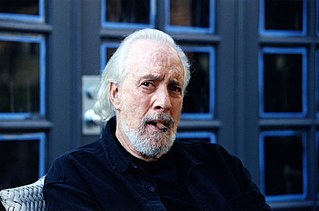A Quote by John Locke
And because it may be too great a temptation to human frailty, apt to grasp at power, for the same persons, who have the power of making laws, to have also in their hands the power to execute them, whereby they may exempt themselves from obedience to the laws they make, and suit the law, both in its making, and execution, to their own private advantage.
Related Quotes
There has been no clearer principle of English or American constitutional law than that, in criminal cases, it is not only the power and duty of juries to judge what are the facts, what is the law, and what is the moral intent of the accused; but that it is also their power, and their primary and paramount duty, to judge the justice of the law, and to hold all laws invalid, that are, in their opinion, unjust or oppressive, and find all persons guiltless in violating, or resisting the execution of, such laws.
The power of the legislative being derived from the people by a positive voluntary grant and institution, can be no other than what that positive grant conveyed, which being only to make laws, and not to make legislators, the legislative can have no power to transfer their authority of making laws, and place it in other hands.
Men naturally rebel against the injustice of which they are victims. Thus, when plunder is organized by law for the profit of those who make the law, all the plundered classes try somehow to enter, by peaceful or revolutionary means, into the making of laws. According to their degree of enlightenment, these plundered classes may propose one of two entirely different purposes when they attempt to attain political power: Either they may wish to stop lawful plunder, or they may wish to share in it.
The Legislative cannot transfer the Power of Making Laws to any other hands. For it being but a delegated Power from the People, they who have it, cannot pass it over to others. The People alone can appoint the Form of the Commonwealth, which is by Constituting the Legislative, and appointing in whose hands that shall be.
Relative to the power that movie stars have, and producers and directors, I would say that even the most respected screenwriters have very little power in Hollywood. I don't think it's in the nature of the writer's profession to go after that power. Writers spend their time alone, hallucinating, writing, making these things up, while these other people are out schmoozing, making connections, meeting each other. They are trotting the corridors of power and making sure they've put their own imprints in it. And they're promoting themselves and their images, as they should.
Not only the financial power, but also the legal power, has remained seated in Britain. The Washington Post commented on June 18, 1983 that after the American Revolution, all the old laws remained in effect in the new United States: Some of these laws of "English common law" dated back to 1278, long before America was discovered.
The essence of that by which Jesus overcame the world was not suffering, but obedience. Yes, men may puzzle themselves and their hearers over the question where the power of the life of Jesus and the death of Jesus lay; but the soul of the Christian always knows that it lay in the obedience of Christ. He was determined at every sacrifice to do His Father's will. Let us remember that; and the power of Christ's sacrifice may enter into us, and some little share of the redemption of the world may come through us, as the great work came through Him.
Making people fear the expression of their own power is a very effective way of disempowering them. It is not just those who feel the frustration of being silenced: it also encompasses every person who has no idea of their own power to realise their visions because they have not seen this in action in their communities.
No individual or private group or private organization has the legal power to initiate the use of physical force against other individuals or groups and to compel them to act against their own voluntary choice. Only a government holds that power. The nature of governmental action is: coercive action. The nature of political power is: the power to force obedience under threat of physical injury-the threat of property expropriation, imprisonment, or death.






































